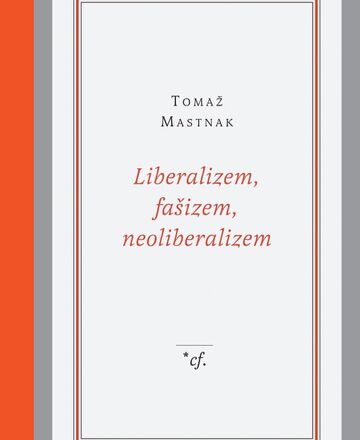
- Publisher: *cf.
- 185 pages
- Author: Tomaž Mastnak
- Original title: Liberalizem, fašizem, neoliberalizem
This book rejects the ideological delusion about the contradiction between liberalism and fascism and shows their historical and theoretical connections. By analysing and comparing (neo)liberal (von Mises) and Nazi (Schmitt) theoreticians, it presents the anti-democratic tendencies of both traditions of thought and their political cooperation, especially the liberal engagement of fascism in suppressing the democratic demands of the non-proprietary classes. The work is an original contribution to the understanding of the problematic history of neoliberalism and a potential fascistic future. It does not see an alternative to fascisation in liberal individualism but in democracy. Mastnak interprets liberalism as a system of an unrestrained accumulation of capital and an ideology of an unlimited enforcement of interests by private property, opposing state regulation and the people’s democratic influence on it. What we today notice as the excesses of capitalism and a return of fascism is the true face of liberalism, which again unrestrainedly uses all the integrated fascist methods for creative destruction.
Tomaž Mastnak
Tomaž Mastnak (1953) is a sociologist, philosopher, and historian of European political thought. Prior to his retirement, he was a senior researcher at the Research Centre of the Slovenian Academy of Sciences and Arts, and had been a visiting scholar at a number of European and American universities. Until he was recently “cancelled” due to his critical views, he had for decades been a regular newspaper columnist, commenting on Slovenian and international politics from the perspective of political theory. In the 1980s, he was an important player in the democratic movement in Slovenia.










 RSS
RSS
